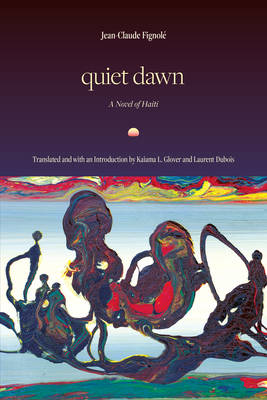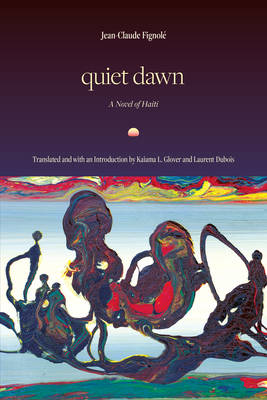
- Afhalen na 1 uur in een winkel met voorraad
- Gratis thuislevering in België vanaf € 30
- Ruim aanbod met 7 miljoen producten
- Afhalen na 1 uur in een winkel met voorraad
- Gratis thuislevering in België vanaf € 30
- Ruim aanbod met 7 miljoen producten
Zoeken
Omschrijving
Jean-Claude Fignolé's Quiet Dawn tells an enthralling story of Haiti's transition from French colony to independent Black republic. The swirling, multilayered novel provides intimate portraits of an eighteenth-century slaveholder, his wife, and their enslaved laborers set against the devastating backdrop of enslavement and revolution. Into this Gothic colonial tale Fignolé interweaves a series of tragic events involving a present-day French nun doing penance for the sins of her ancestors. One of the few contemporary Haitian novels to explicitly grapple with Haiti's revolution, Quiet Dawn foregrounds issues of race, power, the continuing legacy of historical trauma, and the unresolved tensions between the past and present. Published in French in 1990 and appearing here in English for the first time, Quiet Dawn forcefully pushes against the silencing of Haiti's past, belying its title to depict a clamorous Atlantic world that comprises Europe, Africa, and the vast expanse of the Americas.
Specificaties
Betrokkenen
- Auteur(s):
- Vertaler(s):
- Uitgeverij:
Inhoud
- Aantal bladzijden:
- 208
- Taal:
- Engels
Eigenschappen
- Productcode (EAN):
- 9781478028437
- Verschijningsdatum:
- 2/05/2025
- Uitvoering:
- Hardcover
- Formaat:
- Genaaid
- Afmetingen:
- 152 mm x 229 mm
- Gewicht:
- 453 g

Alleen bij Standaard Boekhandel
+ 314 punten op je klantenkaart van Standaard Boekhandel
Beoordelingen
We publiceren alleen reviews die voldoen aan de voorwaarden voor reviews. Bekijk onze voorwaarden voor reviews.








